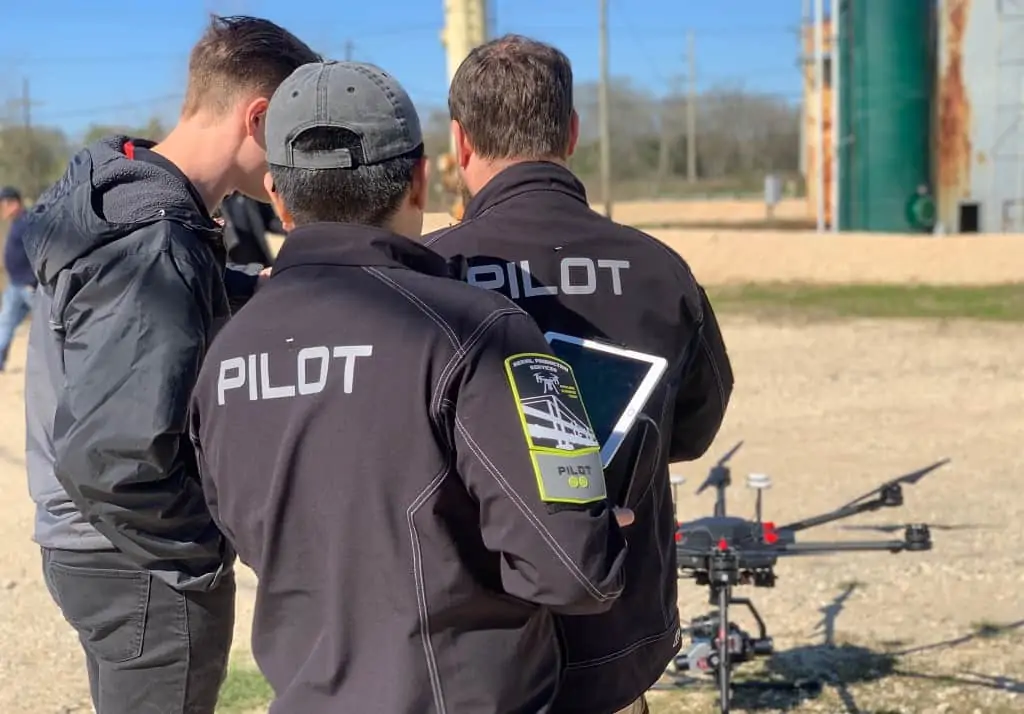
Iris Automation has provided its regulatory professional services to drone service provider Aerial Production Services (APS), cutting the time taken to receive a Federal Aviation Administration (FAA) waiver for beyond line of sight (BVLOS) flights by an estimated six months. With this waiver in place, APS was then able to help a client switch from expensive satellite and airplane-based inspections to drones, improving inspection frequency by 350% and dramatically reducing costs.
APS provides services for telecommunications, natural gas and oil, and construction industries, aiming to provide the safest, most innovative and precise solutions for aerial inspections of pipelines, cellular and utility towers. The company has flown over 17,000 sites in 49 states, leveraging pilots with specialized expertise flying specific, sensitive assets. However, commercial drone operations have traditionally been limited by VLOS (Visual Line of Sight) rules, which severely restrict the distances they can cover.
Iris Automation’s Regulatory Resource Center (RRC) allowed APS to build a robust BVLOS waiver application, with solid risk assessment, mitigation and CONOP package for BVLOS flights for the safest flight operations program possible. The RRC provides a structured workflow to help address regulatory and safety concerns that the Civil Aviation Authority (CAA) require, with an online portal to build, test, and audit complex and advanced operational approvals supported by a team of UAS regulatory experts.
The waiver granted to APS allows point-to-point pipeline inspections with a DJI Matrice drone, using Visual Observers (VOs) covering an area outside of Manning, North Dakota of over six square miles. APS can now report leaks in four days instead of the four weeks that it previously took, while using just a two-person crew covering three times the distance previously possible. This in turn has increased the frequency of inspections.
Iris Automation participates in the Federal Aviation Administration’s BEYOND program to advance complex beyond line of sight UAS operations in the US National Airspace System. Iris Automation is committed to developing critical detection technologies and working closely with global policymakers and regulators to develop appropriate BVLOS safety standards. Ultimately for commercial drone use to become widespread, clear standards for incorporating onboard detect-and-avoid (DAA) capabilities will be necessary to ensure a high degree of air safety.
Dave Sotiros, CEO of Aerial Production Services, commented: “While we had the foundational knowledge of how to obtain the BVLOS waiver, we lacked the expertise to properly convey our operation to the FAA. With Iris Automation’s support and knowledge of BVLOS, they took the time to understand our goals and helped us identify areas of improvement and potential gaps in our processes. This guidance allowed us to aggressively pursue the BVLOS waiver and implement a BVLOS program that mirrors the focus of APS’s principles: Safer, Faster, Better.”
Trever Linn, Director of Airspace Integration at Iris Automation, said: “Accelerating the timeline and reducing the complexity of the waiver process provides a critical business advantage for service providers like APS, allowing them to scale their operations while actually reducing costs and maintaining the highest level of safety. As critical detect and avoid (DAA) technology, standards, and regulations evolve we’ll see true implementation of advanced unpiloted operations that will use waivers like this to inform equipment, training, and operational requirements within a new regulatory framework. The business opportunity to be an early adopter of this capability is immense, and the RRC provides a framework to do so.”
Drew Talley, Managing Pilot, Oil & Gas Team, Aerial Production Services, stated: “Achieving our BVLOS waiver is critical to serving our customers in the oil and gas sector. To be able to serve our customers efficiently on long linear infrastructure makes achieving and pioneering BVLOS key. BVLOS efficiency allows APS to reduce our costs and pass these savings to our customers.”


















